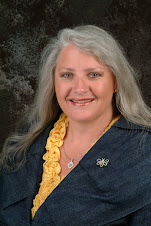Mentoring is the art of helping others to develop their talents, aptitudes, and interpersonal skills and to reach their full human potential. Mentoring can take place in many settings, on the job, in school or college, in a club, within the community, in a social setting, and within a family.
A mentor is someone who resembles your vision of yourself in the future in some area. In common language, the person doing the helping is called the "mentor", while the person being helped is called the "mentee". However, this language hides the fact that mentoring is a mutually beneficial relationship - both mentor and mentee gain from their interaction. The characteristic of an effective mentor is that he/she is trusted and respected by the mentee.
Trust and respect create the foundation for open communication that is essential to a successful mentoring relationship.Other important characteristics of an effective mentor are:Self-awareness, knowing your own strengths and weaknesses.
Communication skills - a willingness to listen and an ability to communicate with the mentee.Openness to new ideas - Having a willingness to learn as well as teach.Patience. Perseverance. Honesty. Integrity. Commitment.A sense of fairness - observing & communicating both the positive & negative in a situation. Sensitivity to the mentee's strengths and weaknesses, intellectual and emotional development. An ability and willingness to work with the mentee on his/her challenges and needs.
For mentoring in work situations, the mentor may require technical knowledge (how to get the job done). This requirement will vary from need and requirement. In some instances it may be necessary for the mentor to teach skills to the mentee. If this is the situation, then the mentor must have the technical knowledge and the ability to communicate with the skills needed. In other circumstances, it may be sufficient for the mentor to know where and/or how the technical knowledge can be obtained.
Tip - This list of characteristics may seem to exclude many people from being a mentor. Not so! Awareness of the characteristics is more important than possessing them at the beginning of a mentoring relationship. Mentors can (and most probably will!) develop many characteristics while working with one or more mentees. We are all learning in life.
Establishing a Mentoring Relationship
Now that we have an individual who wants to grow as a person (mentee), and have selected a suitable mentor, (or mentors) the next stage is to establish a mentoring relationship.
While the mentoring relationship is an informal one, it is best to give it some structure.
There are three basic questions:
Where are we going, what is the desired goal?
Where are we now?
What do we need to do to get to the desired goal?
The mentor is best to lead a discussion with the mentee along the following lines:
What are the mentee’s desired goals?
What is the current situation?
What steps must the mentee take to reach his/her desired goal?
What resources for the goal are available to the mentee and mentor?
What resources need to be obtained from elsewhere?
Resources to be a better mentor include:
The mentor, Other mentors, Training Courses
The mentee (skills and aptitudes are identified through the personal profile).
Skilled professionals such as teachers, doctor and nurses.
Schools, colleges, universities, books, video and cassettes.
Parents, other relatives, colleagues, libraries and museums.
Government, government agencies, not-for-profit organizations, pastors, counselors & friends.
Subscribe to:
Post Comments (Atom)






No comments:
Post a Comment